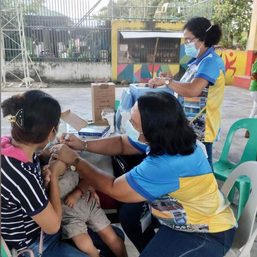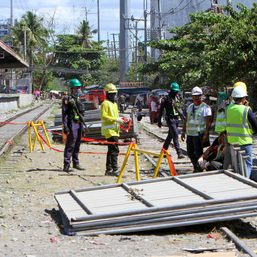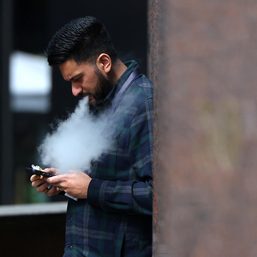SUMMARY
This is AI generated summarization, which may have errors. For context, always refer to the full article.
The House committee on health gave its nod to a bill that seeks to create a medical reserve corps that the government can tap during public health emergencies.
The panel on Tuesday, November 17, unanimously approved a still-unnumbered bill that would mobilize medically-trained professionals and volunteers who would work part-time to boost the country’s healthcare system during times of crises.
The measure is one of the 21 bills that President Rodrigo Duterte asked Congress to pass during his 5th State of the Nation Address in July.
If passed into law, the bill sets the following hierarchy of call for the medical reserve corps:
- Licensed physicians, including those who are retired and those who are no longer practicing in the hospital setting
- Medical students, graduates of medicine, and registered nurses
- Licensed allied health professionals
“The bill mirrors the paramilitary organization of medical reserve in order to mimic the rapid deployment or mobilization of medical volunteers,” House committee on health chair Angelina Tan said during the hearing.
The Department of Health would be tasked to draft the guidelines for the recruitment, selection, compensation, and other incentives for those who will be joining the medical reserve corps.
The medical reserve corps members would be entitled to pay, allowances, medical care, and other benefits during their mobilization. They would also be protected under existing labor law and standards.
A medical reserve corps member who would fail to respond to the order of deployment would have to render 120 hours of community service for the first offense.
The punishment is increased to 240 hours of community service for the second offense, then 480 hours for the 3rd and succeeding offenses.
The bill originally proposed to also impose a 6-month jail time for those who would skip the deployment for 3 times or more. But Cagayan de Oro City 2nd District Representative Rufus Rodriguez asked his colleagues to reconsider the provision. The committee agreed to strike it out.
Filipino healthcare workers have long been overwhelmed by the crippling coronavirus pandemic, with infections in the country reaching 409,574 as of Monday, November 16. (READ: COVID-19 pandemic: Latest situation in the Philippines – November 2020)
Though the Bayanihan law grants health workers special allowances and hazard pay during the COVID-19 crisis, these do not always reach them on time. Others did not receive the full amount, like the family of Cainta nurse Maria Theresa Cruz who died of COVID-19 in July.
Several Filipino health workers have opted to work abroad instead due to low wages and poor working conditions in their home country. – Rappler.com
Add a comment
How does this make you feel?

![[Free to Disagree] Sabwatan ng mga doktor at drug companies](https://www.rappler.com/tachyon/2024/04/tl-sabwatan-doktor-drug-companies-April-22-2024.jpg?resize=257%2C257&crop=292px%2C0px%2C720px%2C720px)



There are no comments yet. Add your comment to start the conversation.